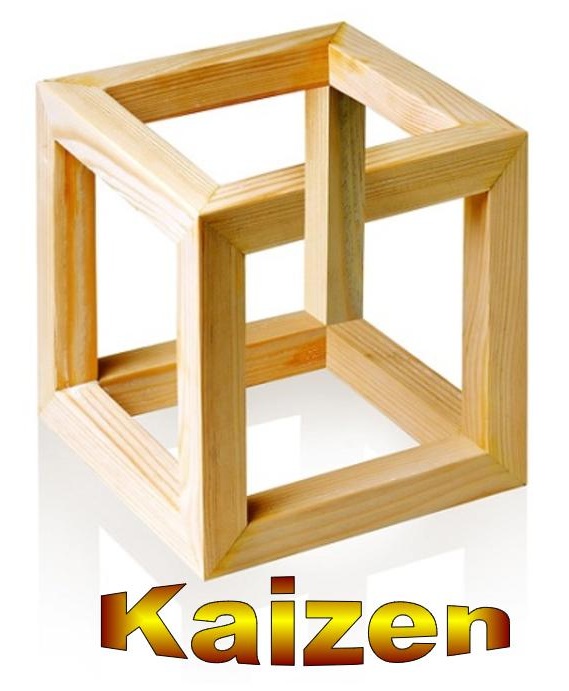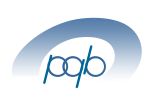T 56 - E-Learning - Kaizen approach improve quality on a daily basis
E-Learning (online course) - Kaizen approach - improve quality of your management system on a daily basis - You save 36 euros on the documents provided!
|
||||

|
|
|||
| Result of the training satisfaction survey : | 100% | Last update on March 20, 2022 |
Discover the Kaizen approach and
- identify the stakes
- understand the requirements
- identify the principles
- master the tools
Get used to
- the Kaizen approach
- the terminlogy
- Kaizen approach documents
- priciples and concepts
- in the field
- total quality control
- tools
- Kaizen event
The important and fundamental elements of a Kaizen approach
- Kaizen approach (history, benefits, terms, steps)
- process approach
- activities
The menu of the course
- Presentation
- MCT (multiple-choice test) Beginning (10 questions)
- 1 Kaizen approach
- 1.1 History
- 1.2 Benefits
- 2 Definitions, books
- 2.1 Definitions
- 2.2 Books
- MCT Kaizen approach (6 questions)
- 3 Process approach
- 3.1 Processes
- 3.2 Mapping
- 3.3 Process approach
- MCT Process approach (6 questions)
- 4 Principles and concepts
- 4.1 Principles
- 4.2 Concepts
- 4.2.1 PDCA cycle
- 4.2.2 Next step
- 4.2.3 Quality before results
- 4.2.4 Customer focus
- 4.2.5 Upstream management
- 4.2.6 Rely on data
- 4.2.7 Control variability
- 4.2.8 Education
- Case Communication
- MCT Principles (8 questions)
- 5 In the field
- 5.1 Innovation and Kaizen
- 5.2 Gemba
- 5.3 Activities and objectives
- 5.4 What not to say
- Case Process stability
- MCT In the field (6 questions)
- 6 Total quality control
- 6.1 The Japanese way
- 6.2 Top management role
- 6.3 The suggestion system
- 6.4 5 S
- 6.5 Waste hunt
- 6.6 Dynamic standardization
- 6.7 Just in time
- 6.8 Poka-Yoké
- Case Customer and need
- MCT Total quality control (8 questions)
- 7 Tools
- 7.1 The word problem
- 7.2 Flowchart
- 7.3 Graphs
- 7.4 Check sheet
- 7.5 Scatter diagram
- 7.6 Histogram
- 7.7 Pareto chart
- 7.8 5 Ws
- 7.9 Fishbone diagram
- 7.10 WWWWHHW
- 7.11 8 D
- 7.12 Control chart
- Case Kaizen & problem
- Case Root cause
- MCT Tools (12 questions)
- 8 Kaizen event
- 8.1 Preparation
- 8.2 Practice
- 8.3Follow-up
- Case Customer and special order
- MCT Kaizen event (6 questions)
- MCT End (20 questions)
Read more
What is the field of application of the Kaizen approach?
The Kaizen approach is a universal method of continual improvement for any production or service company.
What references can be used?
You can use the ISO 9001 standard and Masaaki Imai's books:
- Kaizen, the key to Japanese competitiveness
- Gemba Kaizen, the art of managing with common sense
What are the Kaizen principles?
The basic principles of the Kaizen approach are:
- the 5 S (improve your working conditions)
- eliminate waste
- standardize (prevention of recurrences)
Master the Kaizen approach to be able to:
- improve the functioning of processes on a daily basis
- make work more attractive for everyone
- always better satisfy the stakeholders
- improved process performance and product quality
- better efficiency
- reduced costs
- shortened deadlines
- low improvement costs
- work is easier
- safety is enhanced
- the suggestions are many and diverse
- communication is real and transparent in both directions
- staff take pride in their work
- and of course the most important customers are more satisfied
None
Any person involved in the preparation and implementation of Kaizen approach:
- director
- quality director
- quality manager
- metrology manager
- safety manager
- maintenance manager
- project leader
- quality correspondent
- quality technician
- quality assistant
- quality operator
- quality mission personnel
- internal auditor
- student
21 hours online on average (according to knowledge and aptitudes, this duration can vary individually). One hour of online training is equivalent to at least 2 hours of training on the spot.
You will be able to acquire the techniques to organize and carry out Kaizen activities:
- implement Kaizen principles and concepts
- master activities in the field
- implement total quality control
- use quality tools
- conduct a Kaizen event
Methods and tools
- dedicated Internet site
- specific online training module
- Open and Distance Learning (ODL)
- your training history:
- the time you have passed on each clause and sub-clause of the module
- the record of the score of all your trials of the MCTs (multiple-choice tests)
- level test at beginning of the training
- MCTs with comments, notes on a 20 point scale and recommendations
- videos
- true stories
- case studies
- tools
- wastes
- jokes
- games
- online tutorial :
- a follow up of acquired material and the progress of each trainee
- online or by e-mail within 24 hours
- personalized answers to questions
- advice and recommendations about documents, books and useful links
- delivered certificate of attendance and mastery at the end of the training (example)
Access to the course is 60 days from the date of validation of your order. This period will be renewed for free upon a simple request within 6 months
Kaizen The Secret behind Japanese Productivity 4' 16"
5 S 4' 56"
Masaaki Imai - Definition of Kaizen 4'52"
Kaizen - Continual Improvement 6' 20"
The Kaizen Way: ONE SMALL STEP CAN CHANGE YOUR LIFE by Robert Maurer 7' 21"
The 7 types of MUDA by Masaaki Imai 14' 07"
Kaizen Methodology Tutorial for Continuous Process Improvement | Process Improvement using Kaizen 34' 53"
Here is a MCT (Multiple-choice test) to evaluate, before beginning, the level of your knowledge for this course. (One or more correct answers are possible). You can start again as many times you wish.
 1. The benefits of the Kaizen approach include:
1. The benefits of the Kaizen approach include:
 2. The process mapping allows us, among others, to:
2. The process mapping allows us, among others, to:
 3. Kaizen is:
3. Kaizen is:
 4. Conditions for success in the field include:
4. Conditions for success in the field include:
 5. The activities and objectives of the Kaizen approach are for example:
5. The activities and objectives of the Kaizen approach are for example:
 6. Some benefits of the suggestion system:
6. Some benefits of the suggestion system:
 7. Somme benefits of the 5 S method:
7. Somme benefits of the 5 S method:
 8. Some benefits of just in time:
8. Some benefits of just in time:
 9. Poka-Yoké is usually:
9. Poka-Yoké is usually:
 10. A Kaizen event is an activity:
10. A Kaizen event is an activity:


.png)

